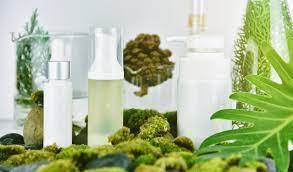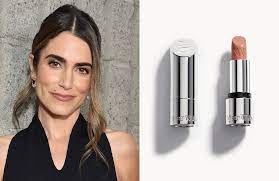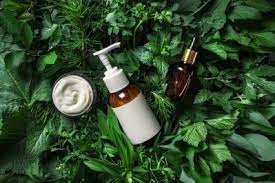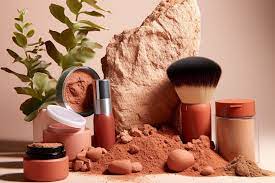Natural Cosmetics: Embrace the Power of Nature for Your Beauty
In a world where chemicals and artificial ingredients dominate the beauty industry, there is a growing movement towards embracing natural cosmetics. Natural cosmetics harness the power of nature to enhance our beauty, while also being gentle on our skin and the environment. From skincare to makeup, these products offer a wholesome alternative that promotes healthy and radiant skin.
One of the key advantages of natural cosmetics is their reliance on plant-based ingredients. These botanical extracts are often rich in vitamins, antioxidants, and minerals that nourish and rejuvenate the skin. Ingredients like aloe vera, shea butter, coconut oil, and chamomile have been used for centuries for their healing properties. They help soothe irritated skin, moisturize dry patches, and promote a healthy complexion.
Unlike synthetic chemicals found in conventional cosmetics, natural alternatives are free from harsh irritants such as parabens, sulfates, and synthetic fragrances. This makes them suitable for those with sensitive or allergy-prone skin. By eliminating these potentially harmful substances from our beauty routines, we can reduce the risk of adverse reactions and long-term damage to our skin.
Furthermore, natural cosmetics are often produced using sustainable practices that minimize harm to the environment. Many companies prioritize ethically sourced ingredients and eco-friendly packaging materials. By opting for natural cosmetics, we contribute to a greener future by reducing our carbon footprint and supporting brands that prioritize sustainability.
Another aspect that sets natural cosmetics apart is their commitment to cruelty-free testing. Animal testing is not only ethically questionable but also unnecessary when it comes to developing safe beauty products. Many natural cosmetic brands proudly display cruelty-free certifications or adhere to strict regulations that ensure no animals are harmed during the production process.
The rise in popularity of natural cosmetics has led to an increase in product variety as well. From organic skincare serums to mineral-based foundations, there is now a wide range of options available to suit different skin types and preferences. Whether you have dry, oily, or combination skin, there is a natural cosmetic product out there that can address your specific needs.
Embracing natural cosmetics is not just about looking good; it’s about feeling good too. By choosing products that are kinder to our bodies and the environment, we make a conscious decision to prioritize our well-being. Natural cosmetics offer a holistic approach to beauty that goes beyond superficial appearances, focusing on nourishing and enhancing our natural features.
So why not explore the world of natural cosmetics? Indulge in the power of nature and witness the transformation it can bring to your beauty routine. From radiant skin to a clear conscience, embracing natural cosmetics is a step towards a healthier and more sustainable future – where beauty truly meets nature.
9 Essential Tips for Embracing Natural Cosmetics
- Read the labels
- Understand ingredient lists
- Avoid harmful chemicals
- Choose organic options
- Research ethical brands
- Patch test before use
- Check expiration dates
- Store properly
- DIY options
Read the labels
When it comes to choosing natural cosmetics, one of the most important tips to keep in mind is to read the labels. In a market flooded with products claiming to be natural, it’s crucial to be an informed consumer and understand what you’re putting on your skin.
Labels provide valuable information about the ingredients used in a product. Take a moment to scan through the list and look for recognizable, plant-based ingredients. Natural cosmetics often feature botanical extracts, essential oils, and fruit or vegetable derivatives. These ingredients not only provide nourishment but also offer specific benefits for different skin types.
It’s also essential to check for any potential allergens or irritants. Some natural ingredients may still cause reactions in certain individuals. By reading the labels carefully, you can avoid using products that may trigger allergies or sensitivities.
In addition to ingredient lists, labels may also indicate certifications or seals of approval from reputable organizations. Look out for symbols such as “certified organic,” “cruelty-free,” or “vegan.” These certifications ensure that the product meets certain standards and has undergone testing or adheres to specific ethical practices.
Another aspect worth considering is the packaging of natural cosmetics. Sustainable brands often use eco-friendly materials like glass, recycled plastic, or biodegradable packaging options. By opting for products with environmentally conscious packaging, you contribute to reducing waste and supporting brands that prioritize sustainability.
Reading labels is not just about understanding what goes into the product but also about making an informed decision based on your personal values and preferences. It allows you to align your beauty routine with your beliefs and support brands that share your commitment to natural ingredients and ethical practices.
So next time you’re shopping for natural cosmetics, take a moment to read the labels. Educate yourself about the ingredients used, look for certifications that matter to you, and consider the packaging’s environmental impact. By being mindful of what you choose, you can confidently embrace natural cosmetics that align with your values and promote a healthier, more sustainable beauty routine.
Understand ingredient lists
When it comes to natural cosmetics, one of the most important tips to keep in mind is to understand ingredient lists. In a world filled with marketing buzzwords and misleading claims, it’s crucial to know what goes into the products we use on our skin.
Reading ingredient lists may seem daunting at first, but it’s a skill worth mastering. By familiarizing ourselves with common natural ingredients and being aware of potential harmful substances, we can make informed choices about what we put on our skin.
Firstly, look for ingredients that you recognize and understand. Natural cosmetics often feature botanical extracts such as aloe vera, jojoba oil, or green tea. These plant-based ingredients are known for their beneficial properties and have been used in skincare for generations.
Avoiding certain chemicals is equally important. Ingredients like parabens, phthalates, and sulfates are often found in conventional cosmetics and have been linked to potential health risks. Opting for natural cosmetics helps eliminate these potentially harmful substances from our beauty routines.
Another helpful tip is to be aware of the order in which ingredients are listed. The higher an ingredient appears on the list, the more concentrated it is in the product. This means that if a natural extract you’re interested in is listed towards the end, it may not be present in significant amounts.
It’s also worth noting that some natural ingredients may have scientific names rather than their common names. For example, vitamin E may be listed as tocopherol or chamomile as Matricaria recutita extract. Familiarize yourself with these alternative names to ensure you can identify them on ingredient lists.
Lastly, if you’re unsure about an ingredient or want more information about its safety and efficacy, don’t hesitate to do some research. There are reputable online resources and databases available that provide insights into different cosmetic ingredients.
Understanding ingredient lists empowers us as consumers to make informed decisions about the products we choose to use. By being aware of what goes into natural cosmetics, we can ensure that we’re truly embracing the power of nature and reaping the benefits it has to offer.
So, next time you’re shopping for natural cosmetics, take a moment to read and understand the ingredient list. It’s a small step that can make a big difference in your skincare routine and overall well-being.
Avoid harmful chemicals
In our quest for beauty, it’s essential to be mindful of the products we use on our skin. One crucial tip when it comes to natural cosmetics is to avoid harmful chemicals. Traditional cosmetics often contain synthetic ingredients that can have adverse effects on both our skin and overall health.
Many conventional beauty products contain chemicals like parabens, sulfates, phthalates, and synthetic fragrances. These substances can be harsh and irritating to the skin, causing dryness, redness, or even allergic reactions. Prolonged exposure to these chemicals may also lead to more serious health concerns in the long run.
By opting for natural cosmetics, we can eliminate these potential risks. Natural products are formulated with plant-based ingredients that are gentle on the skin and free from harmful additives. Instead of relying on artificial fragrances or preservatives, they harness the power of nature to enhance our beauty.
When choosing natural cosmetics, it’s important to read product labels carefully. Look for brands that prioritize transparency and list their ingredients clearly. Familiarize yourself with common harmful chemicals so you can easily identify them and make informed decisions about what you put on your skin.
Fortunately, there is a growing range of natural cosmetic brands available today that offer safer alternatives without compromising on quality or effectiveness. These brands prioritize using organic or ethically sourced ingredients and avoid unnecessary additives.
Making the switch to natural cosmetics not only benefits our own well-being but also contributes to a healthier planet. Many synthetic chemicals found in traditional beauty products have a negative impact on the environment when they enter waterways or accumulate in landfills. By choosing natural cosmetics, we support sustainable practices that are kinder to both our bodies and the Earth.
In conclusion, avoiding harmful chemicals is a fundamental tip when it comes to embracing natural cosmetics. By being conscious of what we apply onto our skin, we can protect ourselves from potential harm while enjoying the benefits of nature’s nourishing ingredients. Let’s prioritize our well-being and make a positive impact by opting for natural cosmetics that promote healthier beauty routines.
Choose organic options
Choose Organic Options: Unlock the True Potential of Natural Cosmetics
When it comes to natural cosmetics, one important tip stands out among the rest: choose organic options. Organic cosmetics offer a multitude of benefits that go beyond just being natural. By opting for organic products, you not only prioritize your own well-being but also support sustainable farming practices and protect the environment.
Organic cosmetics are made from ingredients that are grown without the use of synthetic pesticides, herbicides, or genetically modified organisms (GMOs). This means that the plants used in these products are cultivated using environmentally friendly methods that promote biodiversity and soil health. By choosing organic, you play a part in reducing the amount of harmful chemicals released into our ecosystems.
Furthermore, organic cosmetics are often free from artificial additives and preservatives. Instead, they rely on natural substances such as plant extracts and essential oils to provide their beneficial properties. These ingredients not only nourish and rejuvenate your skin but also minimize the risk of irritation or allergic reactions.
Choosing organic options also means supporting sustainable farming practices. Organic farmers prioritize soil conservation, crop rotation, and water management techniques to maintain the long-term health of their land. By purchasing organic cosmetics, you contribute to a demand for these environmentally responsible practices.
In addition to their positive impact on the environment, organic cosmetics can deliver outstanding results for your skin. The absence of harsh chemicals allows your skin to breathe and function optimally. Natural ingredients like jojoba oil, rosehip seed oil, and lavender extract have been found to have moisturizing, anti-aging, and soothing properties.
When shopping for organic cosmetics, look for certifications from reputable organizations such as COSMOS or USDA Organic. These certifications ensure that the products meet strict standards for ingredient sourcing and manufacturing processes.
By choosing organic options in your beauty routine, you unlock the true potential of natural cosmetics. Not only do you reap the benefits of gentle and effective skincare but you also contribute to a healthier planet. So, take a step towards a more sustainable and radiant future by embracing organic cosmetics. Your skin and the environment will thank you.
Research ethical brands
When it comes to embracing natural cosmetics, one valuable tip is to research and support ethical brands. In a world where greenwashing and false claims are prevalent, it’s important to be discerning about the products we choose for our beauty routines.
Ethical brands are those that prioritize transparency, sustainability, and social responsibility. They go beyond simply using natural ingredients and take steps to ensure their entire supply chain aligns with ethical practices. This means sourcing ingredients responsibly, using eco-friendly packaging materials, and implementing fair labor practices.
By supporting ethical brands, we can trust that the products we use are not only good for our skin but also for the planet. These brands often prioritize organic farming methods, avoiding harmful pesticides and chemicals that can have a detrimental impact on ecosystems. They may also support initiatives such as reforestation or carbon offsetting to minimize their environmental footprint.
Moreover, ethical brands often prioritize fair trade practices. This means ensuring that farmers and workers involved in the production process are paid fair wages and provided with safe working conditions. By supporting these brands, we contribute to empowering communities and promoting social justice within the beauty industry.
Researching ethical brands can be as simple as reading product labels or doing some online investigation. Look for certifications such as cruelty-free logos from organizations like Leaping Bunny or PETA, which guarantee that no animal testing has been conducted. Seek out organic certifications like COSMOS or USDA Organic for reassurance that the products meet strict standards.
Additionally, explore brand websites to learn more about their values and commitments towards sustainability and social responsibility. Look out for transparency in ingredient sourcing, eco-friendly packaging initiatives, or partnerships with charitable organizations.
By taking the time to research ethical brands, we make informed choices that align with our values of supporting sustainable practices and making a positive impact on both our bodies and the environment. Remember that every purchase is an opportunity to vote with your wallet – supporting companies that prioritize ethics can help drive change within the beauty industry.
So, before you make your next natural cosmetics purchase, take a moment to research ethical brands. By doing so, you can feel confident that your beauty routine is not only enhancing your natural beauty but also contributing to a more sustainable and socially responsible world.
Patch test before use
Patch Test Before Use: A Crucial Step for Natural Cosmetics
When it comes to incorporating natural cosmetics into your beauty routine, there is one essential tip that should never be overlooked: patch test before use. This simple yet crucial step can save you from potential skin irritations or allergic reactions and ensure a positive experience with the product.
Patch testing involves applying a small amount of the product onto a small area of your skin, typically on the inner forearm or behind the ear. This allows you to assess how your skin reacts to the ingredients before applying it to a larger area, such as your face or body. It’s a quick and easy process that can provide valuable insights into any potential adverse effects.
Why is patch testing so important? Even though natural cosmetics are generally considered gentler on the skin compared to their synthetic counterparts, everyone’s skin is unique and may react differently to certain ingredients. Patch testing allows you to identify any sensitivities or allergies you might have before fully committing to using the product.
To perform a patch test, start by cleaning a small area of your skin with mild soap and water. Apply a small amount of the product onto the cleansed area and gently rub it in. Leave it undisturbed for 24-48 hours, keeping an eye out for any signs of redness, itching, swelling, or irritation during this time. If you experience any discomfort or adverse reactions, it’s best to discontinue use of the product.
By taking this precautionary step, you can prevent potential skin issues and make informed decisions about which natural cosmetics are suitable for your specific needs. It’s especially important if you have sensitive or reactive skin prone to allergies.
Remember that even if a product claims to be “natural” or “organic,” it doesn’t guarantee that it will work well with your skin. Each individual’s skin chemistry is unique, so what works for one person may not work for another. Patch testing allows you to personalize your skincare routine and find the products that truly benefit your skin.
In summary, patch testing before using natural cosmetics is a small yet vital step that should not be overlooked. It helps you avoid potential skin irritations or allergic reactions and ensures a positive experience with the product. By taking the time to patch test, you can confidently incorporate natural cosmetics into your beauty routine, knowing that they are compatible with your skin and will enhance your natural beauty.
Check expiration dates
When it comes to natural cosmetics, one important tip to keep in mind is to always check the expiration dates. Just like any other beauty product, natural cosmetics have a shelf life and using them past their expiration date can lead to potential risks.
Natural cosmetics often contain organic and plant-based ingredients, which can be more susceptible to degradation over time. As these ingredients age, their effectiveness may diminish, and they can even become less stable or prone to bacterial growth. Using expired products not only means you might not get the desired results but could also lead to skin irritation or infections.
To ensure that you are getting the most out of your natural cosmetics while keeping your skin safe, it’s essential to pay attention to the expiration dates. Most natural cosmetic products have a small symbol on their packaging that indicates how long they are good for after opening. This is usually represented by a number followed by the letter “M” (months).
Make it a habit to check this symbol before using any product. If you notice that a product has exceeded its recommended usage period, it’s best to discard it and replace it with a fresh one. Remember, using fresh and effective natural cosmetics will help you achieve optimal results and maintain healthy skin.
By being mindful of expiration dates, you not only protect your skin but also make the most of your investment in natural cosmetics. So take a moment before applying any product and ensure that it is still within its recommended timeframe for use. Your skin will thank you for it!
Store properly
Proper Storage: The Secret to Preserving the Power of Natural Cosmetics
When it comes to natural cosmetics, proper storage is key to maintaining their effectiveness and extending their shelf life. These products, which harness the power of nature, require a little extra care to ensure they remain fresh and potent for longer.
First and foremost, it’s important to store natural cosmetics in a cool and dry place. Exposure to heat and humidity can degrade the quality of these products over time. Avoid keeping them in direct sunlight or near sources of heat, such as radiators or windowsills. Instead, find a cool spot in your bathroom or bedroom where they can be protected from temperature fluctuations.
Additionally, it’s crucial to keep natural cosmetics tightly sealed when not in use. Oxygen and moisture can compromise the integrity of these products, leading to spoilage or reduced effectiveness. Make sure lids are securely fastened after each use to minimize air exposure. This will help preserve their potency and prevent bacterial contamination.
Another tip for storing natural cosmetics is to avoid cross-contamination. Using clean hands or tools when applying these products is essential. Moisture or bacteria from dirty fingers can introduce unwanted elements into the product, potentially compromising its quality or causing skin irritation. Consider using spatulas or clean brushes when scooping out creams or applying makeup for an added layer of hygiene.
Furthermore, pay attention to expiration dates on natural cosmetic products. While they tend to have a shorter shelf life compared to conventional cosmetics due to their lack of preservatives, using them within their recommended timeframe ensures you experience their full benefits while they are at their freshest.
Finally, keep an eye out for any changes in texture, color, or scent. Natural cosmetics may undergo subtle changes over time as they interact with air and light exposure. If you notice any significant alterations in your product’s appearance or smell, it may be an indication that it has expired or become contaminated.
By following these simple storage guidelines, you can maximize the lifespan and efficacy of your natural cosmetics. Proper storage not only helps you get the most out of your products but also ensures that you are using them in their purest and safest form. So, take a moment to organize your beauty collection, find the perfect spot, and let nature’s power shine through every time you reach for your favorite natural cosmetic product.
DIY options
DIY Natural Cosmetics: Unleash Your Creativity and Nourish Your Skin
In the realm of natural cosmetics, do-it-yourself (DIY) options have gained immense popularity. Creating your own beauty products allows you to harness the power of nature while giving you complete control over the ingredients you use. From face masks to lip balms, DIY natural cosmetics offer a fun and customizable way to nourish your skin.
One of the key advantages of DIY natural cosmetics is that they allow you to tailor the ingredients to suit your skin’s specific needs. You can choose organic and ethically sourced ingredients that align with your values and avoid any potential allergens or irritants that may be present in commercial products.
Creating your own natural cosmetics also gives you the freedom to experiment with different combinations and formulations. You can mix various oils, butters, essential oils, and herbs to create personalized skincare solutions that address your individual concerns. Whether you’re looking for a moisturizing facial serum or a soothing body scrub, the possibilities are endless.
Another benefit of DIY natural cosmetics is cost-effectiveness. Many commercial natural products can be quite expensive due to their high-quality ingredients and production processes. By making your own beauty products, you can save money while still enjoying the benefits of natural skincare.
Moreover, DIY natural cosmetics are a great way to reduce waste and promote sustainability. You can reuse containers from old beauty products or opt for eco-friendly packaging materials such as glass jars or recyclable containers. By minimizing single-use plastic waste, you contribute towards a greener planet.
Engaging in DIY natural cosmetics also offers a creative outlet. Mixing different ingredients and experimenting with scents and textures can be an enjoyable and therapeutic experience. It allows you to connect with nature’s bounty on a deeper level while unleashing your inner artist.
However, it’s important to note that not all DIY recipes found online are safe or effective. It’s crucial to do thorough research and ensure you are using reliable sources for recipes and guidelines. Additionally, be mindful of any allergies or sensitivities you may have and perform patch tests before applying new products to your skin.
In conclusion, DIY natural cosmetics provide a wonderful opportunity to explore the world of natural skincare while embracing your creativity. From customizing ingredients to reducing waste, making your own beauty products can be a rewarding and sustainable choice. So why not give it a try? Unleash your inner chemist, nourish your skin with the power of nature, and enjoy the journey of creating your very own DIY natural cosmetics.




